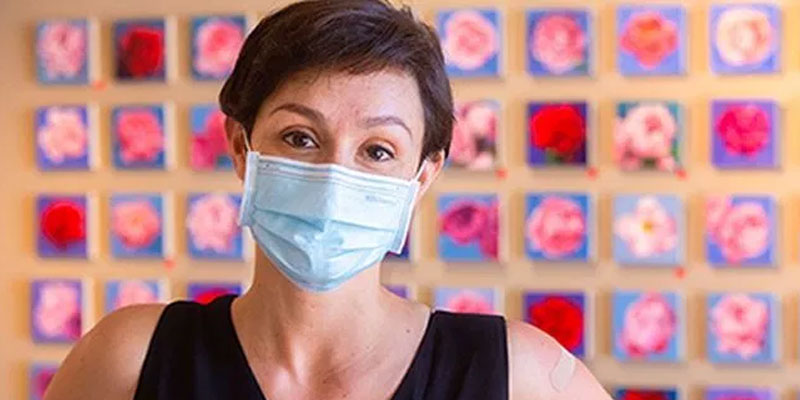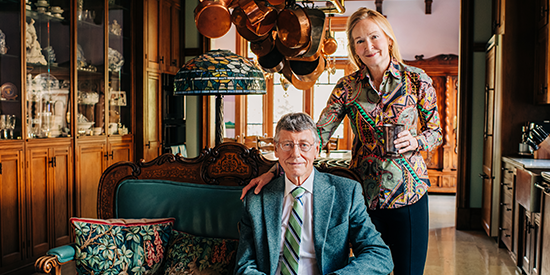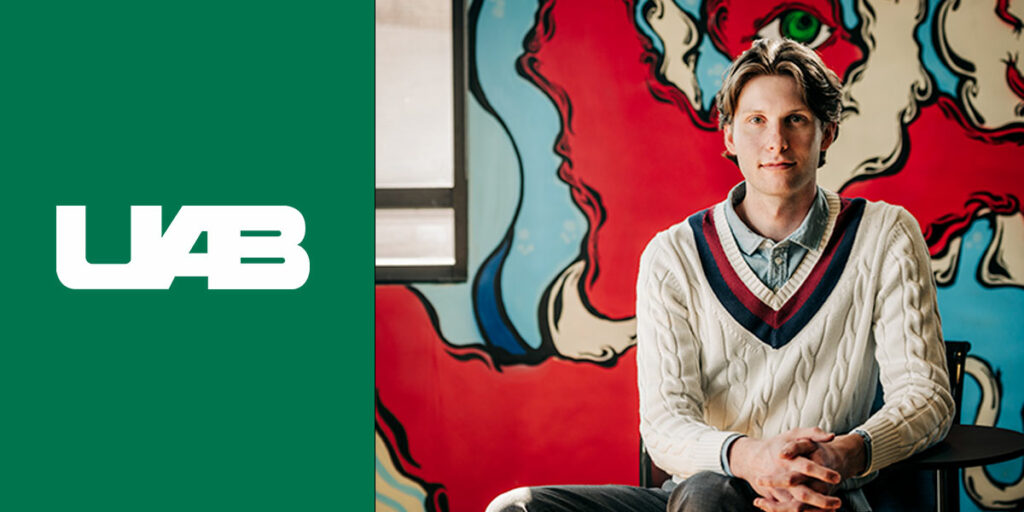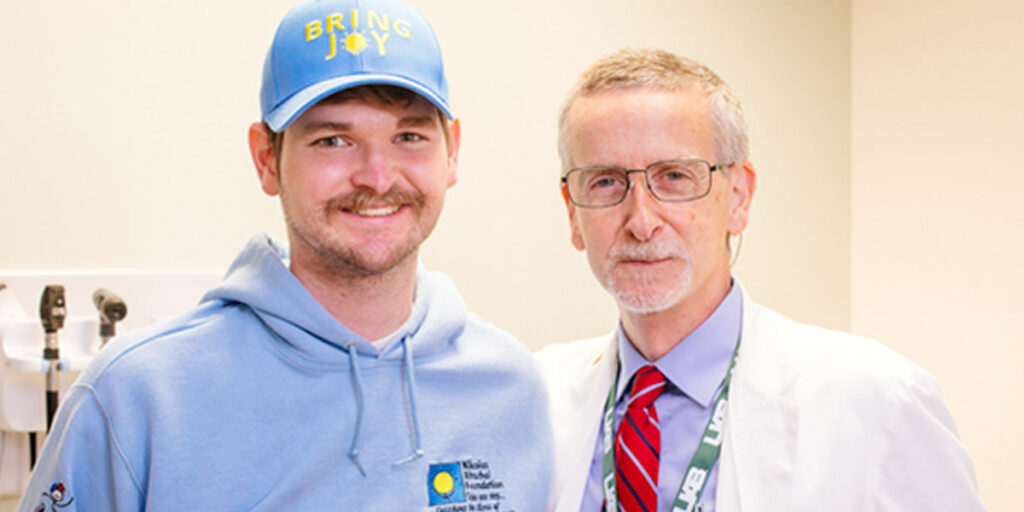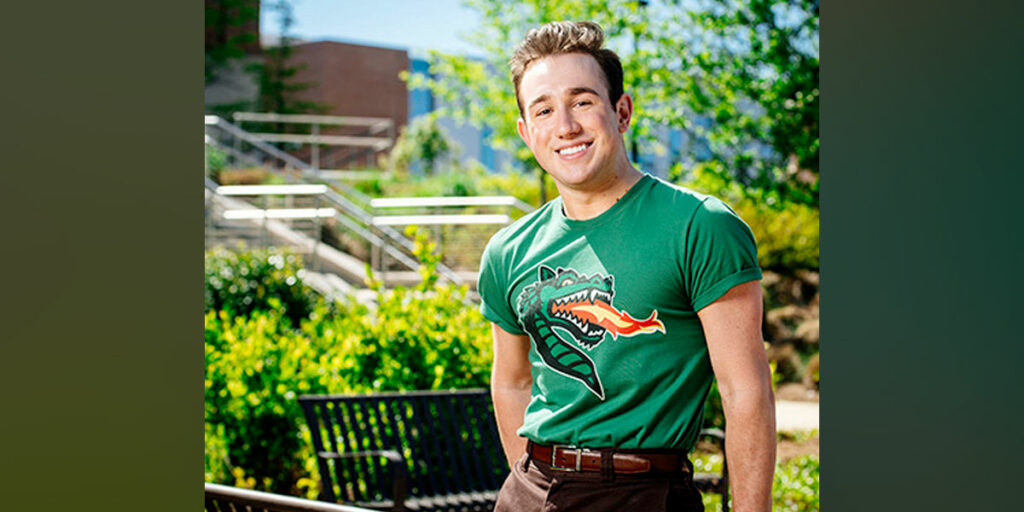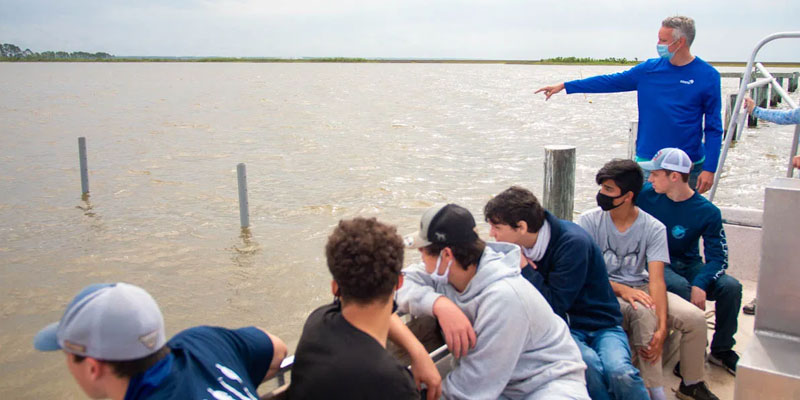At 14, Abbie began using drugs. At 16, she was convinced she would not live to see her 18th birthday. Then, at 22, she was crying in a doctor’s office, pregnant and addicted to heroin.
Shortly after that visit, Abbie received a call from a nurse with the University of Alabama at Birmingham’s Obstetrical Complications Clinic inviting her to take part in the new Comprehensive Addiction in Pregnancy Program. The program provides a safe, nonjudgmental space for recovery and care for pregnant women with substance use disorders.
Birmingham artist Amy Peterson had never heard of CAPP. Then a friend commissioned a flower painting to give to a young woman who, like Abbie, was considering the program. In 2020, Peterson had seen firsthand the impacts of substance use disorders after losing a close family friend. Peterson was impressed with how the program addressed the multitude of variables involved with pregnancy and addiction, and she was inspired by the courage of its participants.
“I tried putting myself in their shoes, in the shoes of someone who was not only pregnant, but also struggling with substance abuse or addiction,” Peterson said. “They had to have felt like there were many odds stacked against them.”
Peterson decided to use her talents to bring the art and medical worlds together. Instead of painting a single flower, she would paint 50 in honor of the 50 women who went through the program in its first year. The “Peony Project” was born.
Peterson researched the symbolism of a variety of flowers before settling on the peony. The popular perennial flower is recognized around the world as a symbol of compassion, honor and rebirth, tying into the values of CAPP and the theme of the exhibit.
Directors of CAPP were excited to partner with Peterson as a means of honoring their patients and raise awareness for their growing program.
“We aim to break down barriers to treatment during pregnancy and provide the much needed support for these new mothers to succeed in their recovery,” said Dr. Brian Casey, director of UAB’s Division of Maternal-Fetal Medicine. “The Peony Project is a great way to get our mission out into the public sphere.”
In 2016, the Alabama Maternal Mortality Review found that substance use disorders were key factors in 47 percent of pregnancy-associated and pregnancy-related deaths. UAB’s Division of Maternal-Fetal Medicine established CAPP the following year. The program uses a one-stop model, employing staff ranging from obstetrics and gynecology experts to substance abuse counselors, in an effort to provide timely access to treatment, court advocacy, case management, comprehensive health care and recovery support.
All women who enter the clinic are in active addiction. Delivering mothers attend an average of 11 specialized prenatal visits prior to delivery, including substance use treatment and peer recovery support groups. Short-term outcomes are gathered at the delivery. Care continues six months post-partum with in-home parenting education and continuing recovery support.
Since its inception, CAPP has served 159 women from across the state. According to the program’s midpoint report released in September 2020:
- Only 5 percent of infants delivered were positive for nonprescribed substances.
- 83 percent of moms were active in or completed treatment at discharge.
- 79 percent of moms had no child welfare involvement or no substantiated reports.
“We are encouraged by the preliminary outcomes,” Casey said. “The model is working. Mothers are getting the support they need to sustain their recovery and deliver healthy babies. It is a win-win for the family and our community.”
Peterson felt the Peony Project could pay tribute to CAPP and its participants while also being a fundraising opportunity. Community members can sponsor individual paintings in honor or in memory of someone. Donations will fund purchases of incentives and necessities, such as diapers, breast pumps and car seats for participants in the program.
“I cannot begin to understand what these women are going through,” Peterson said. “I hope that this collection of flowers has captured some semblance of the beauty and courage and the hope that has carried them through their journey to recovery.”
It was courage that brought Abbie to CAPP, but it was the welcoming support system she gained that encouraged her to stick with her journey.
“They made me realize that I could do it and that I am worth it,” Abbie said. “It was the first time I felt compassion, empathy and love. They genuinely care about us.”
Three years after entering the program, Abbie remains sober and uses tools she learned to sponsor women on similar paths. She enjoys raising her son while living her healthy new life.
The Peony Project will be displayed at Beverly McNeil Gallery through the end of May. To sponsor a painting, people can visit the Peony Project webpage.
The project is a collaborative effort among Birmingham artist Amy R. Peterson; Andrea Clement Harbison, AIA; the Beverly McNeil Gallery; UAB Maternal-Fetal Medicine; and the UAB Department of Psychiatry.
This story originally appeared on the UAB News website.
(Courtesy of Alabama NewsCenter)




